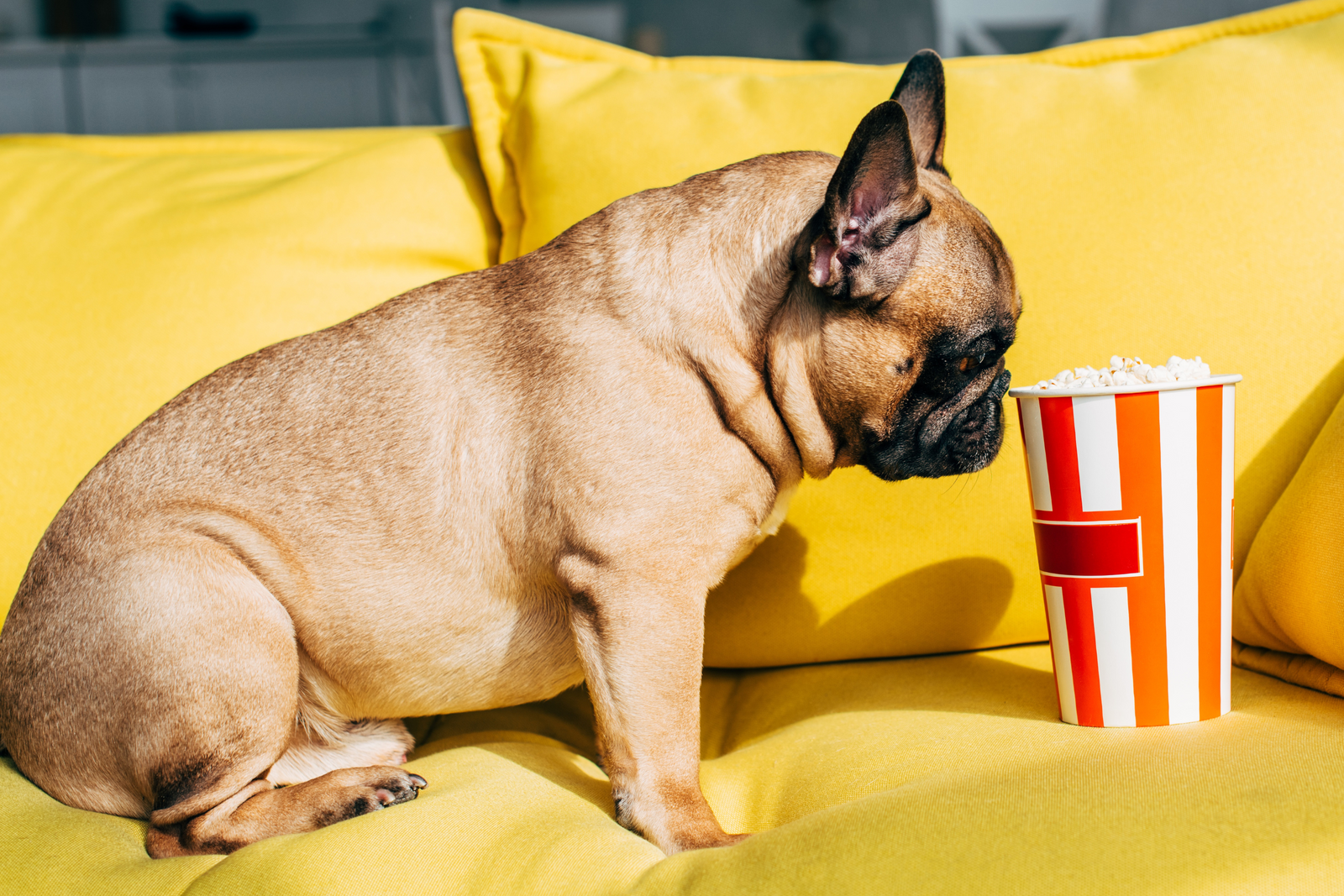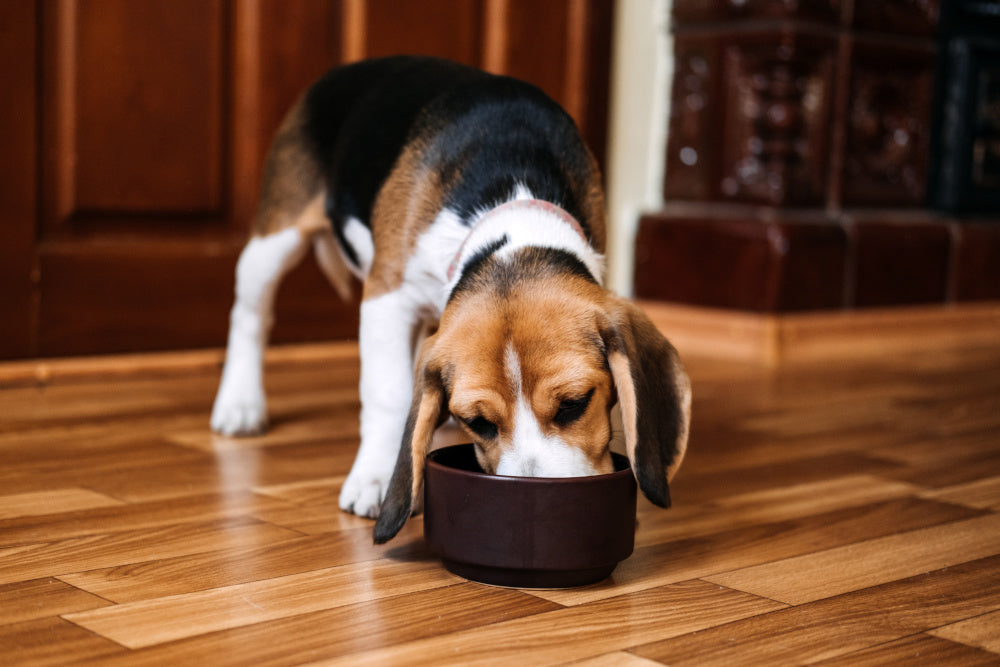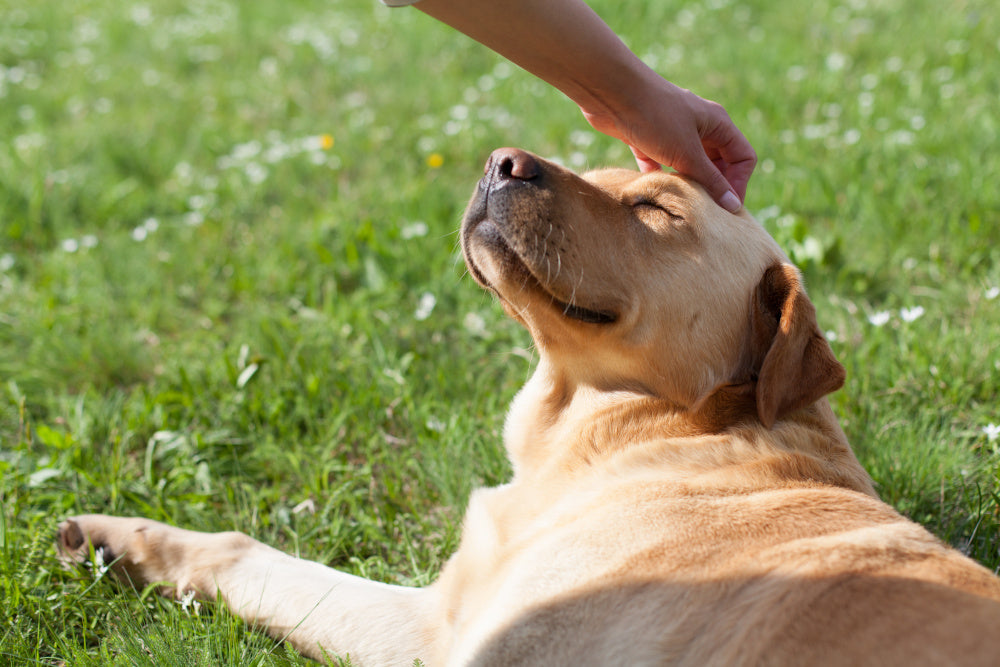There is something so tempting about the smell of freshly popped popcorn. It can make our mouth water and tummy talk. But it’s not just us who love this tasty snack, our dogs are just as interested in popcorn.
So the real question is can we share popcorn with our dogs? The answer is a little complicated, as dogs can eat plain air-popped popcorn. But other flavors and ingredients like butter and salt in popcorn can be harmful to their health.
To better understand how to safely feed popcorn to your dog, let's discuss the topic in a little more detail.
Does Popcorn Have Any Nutritional Value for Dogs?
Popcorn is a puffed kernel of corn, which is a whole grain that contains fiber, antioxidants, several minerals, and trace amounts of vitamins. But since it's just a snack, you shouldn’t rely on them for your dog’s daily nutritional needs.
Furthermore, you should ensure that snacks like popcorn should not make up more than 10% of your dog’s daily caloric intake. The other 90% of their daily calories should come from a healthy and well-balanced meal.

When fed in moderation, popcorn can provide various nutrients to your dog, including:
1. Dietary Fibers
Popcorn is made from corn, which is a rich source of dietary fiber. It can help improve your dog’s digestive health and promote bowel regularities. Fiber is also known to reduce the risk of certain diseases like obesity in dogs.
2. Antioxidants
Popcorn contains polyphenols, a strong antioxidant that helps protect the cells against the harmful effects of free radicals. It helps prevent chronic inflammation, which is the biggest factor in the progression of various chronic diseases like diabetes, cataracts, arthritis, and autoimmune disorders.
3. Vitamins & Minerals
Popcorn contains trace minerals like magnesium, phosphorus, potassium, iron, manganese, copper, and zinc. It’s also a rich source of vitamin B complex, including niacin and thiamine. These nutrients help support various essential functions in your dog’s body whilst promoting their overall growth and development.
Possible Side Effects of Popcorn for a Dog
Below are a few caveats you should know before feeding popcorn to your dog.
1. Popcorn Toppings & Seasoning
Most store-bought popcorn is made with ingredients such as oil, butter, salt, spices, cheese, or caramel. These ingredients can be harmful to your dog's health. The safest way is to feed plain, air-popped popcorn to your dog.
When it comes to buttered and salted popcorn, if your dog sneaks one or two pieces, they shouldn't experience a negative reaction. But if eaten in larger quantities, dogs might suffer from digestive issues or salt poisoning.
Also, continuously eating buttered popcorn in large quantities could lead to many health problems, including obesity and pancreatitis.
Sweet toppings on popcorn, such as caramel or candied flavors, are more dangerous for your dog. Caramel or candied popcorn might contain chocolate or artificial sweeteners, like xylitol, that are toxic to dogs.
These flavored popcorns are especially bad for dogs with prior health conditions like diabetes or pancreatitis.

2. Right Portion Sizes
Popcorn is safe when prepared properly i.e. without any seasoning or flavoring for your dogs. But you should be mindful of the portion sizes and follow the 90/10 rule, which states snacks like popcorn should not make up more than 10% of your dog’s daily caloric intake. The other 90% of their daily calories should come from a healthy and well-balanced meal.
In case of any confusion or doubt, it would be ideal to ask a veterinarian about how much popcorn your dog can eat safely.
3. Popcorn Allergy
Some dogs may have an allergy to popcorn or corn. If they haven't had corn or popcorn before, it is suggested that you feed a single piece of popcorn to your dog. See how they react for the next 24-48 hours.
Look out for the following signs of popcorn allergies in dogs:
- Upset stomach, diarrhea, constipation, or vomiting
- Bloating
- Excessive licking or itching
- Skin rashes or irritation
- Hives
- Abdominal pain
If you notice any of these signs of popcorn allergy, contact your veterinarian immediately.

4. Choking Hazard
No matter how you make your popcorn, some popcorn kernels just refuse to pop. While they are easy for you to avoid, they could cause some health problems for your dog.
For smaller dogs, unpopped kernels could be a choking hazard or more likely can get lodged in their digestive system leading to intestinal blockage.
In case your dog has accidentally eaten unpopped kernels, you should keep an eye out for any of the following signs of intestinal blockage:
- Constipation
- Vomiting
- Loss of appetite
- Diarrhea
- Abdominal pain
- Excessive whining or restlessness
- Sudden aggressive behavior
If you notice any of these signs of intestinal blockage, contact your veterinarian immediately.
5. Dental Issues With Popcorn
Popped kernel hulls can get stuck in between your dog's gums or teeth. It can lead to discomfort and tooth decay. Thus you should check your dog's mouth after feeding them popcorn. And brush their teeth if you find any kernel hull stuck between their teeth.
What’s The Safest Way to Feed Popcorn to Your Dog?
If you like making plain popcorn for yourself, feel free to share with your pup from the same bowl. But if you buy or make popcorn that contains extra seasoning, butter, or salt, it’s best to avoid feeding it to your dog.
You can figure out how much popcorn to give to your dog through the 90/10 rule, which states that treats like popcorn shouldn’t make up more than 10% of your dog’s daily caloric intake. The remaining 90% of their daily calories should come from a healthy and well-balanced meal.
It’s also important that you have carefully removed unpopped kernels before freely sharing the popcorn with your dog.
Furthermore, when buying commercially packaged popcorn like microwave or pre-popped popcorn, read the ingredients list carefully. Most include salt, oil, butter, and other seasonings which aren't safe or healthy for dogs.

What to Do if Your Dog Eats a Lot of Popcorn?
There’s a chance that you left your bowl of popcorn unattended for a minute or two and your dog gulped it all down. You shouldn’t panic, as in most cases, a bowl of popcorn will not cause any lasting damage. However, it might lead to an upset stomach, diarrhea, vomiting, or constipation.
If the popcorn were flavored or had a high amount of salt, then there’s also a chance of salt toxicity. In such cases, you should watch for signs of salt toxicity, including vomiting, diarrhea, muscle tremors, and seizures.
If you suspect any serious problem, you should take your dog to a veterinarian.
Summing Up
Popcorn is a simple yet versatile snack, perfect for family movie nights or binge-watching Netflix. It’s even better that you can share a few pieces of plain air-popped popcorn with your dog. But make sure you avoid feeding them popcorn that contains other ingredients like cheese, salt, butter, and caramel, as they can be harmful to their health.
If you have any further doubts, you should consult with your veterinarian before sharing popcorn with your dog.

FAQs
Let’s answer some frequently asked questions about feeding popcorn to a dog.
1. Can a dog eat popcorn?
It largely depends on what kind of toppings and flavoring are added to the popcorn. A dog can safely eat plain, air-popped popcorn.
2. How much popcorn can a dog eat?
Try to follow the 90/10 rule that states treats like popcorn should only make up 10% of your dog’s daily caloric intake. And the remaining 90% of their daily calories come from a healthy and well-balanced meal.
3. Can a dog eat popcorn with butter?
If you buy popcorn that contains butter, you should avoid feeding it to your dog as it contains high-fat content and other ingredients that can lead to many health problems for a dog.
4. Can a dog eat caramel popcorn?
It’s best to avoid feeding any sweet, candied, or caramel popcorn to your dog. It might contain chocolate or artificial sweeteners, like xylitol, that are toxic to dogs.
5. Can a dog eat popcorn with salt?
If you buy popcorn that contains salt, you should avoid feeding it to your dog as too much salt can lead to health complications like dehydration and salt poisoning.
6. Can a dog eat unpopped popcorn kernels?
No, a dog should never eat unpopped popcorn kernels. It can be a choking hazard and can even get lodged in their digestive system leading to intestinal blockage, especially with smaller dogs.
7. Can a dog eat popcorn chips?
No, you shouldn’t feed popcorn chips to your dog as they might contain ingredients and seasoning like salt, onion, and garlic powder. These ingredients can be harmful to a dog.
Join Our Pack
Sign up for our monthly newsletter focused on dog digestion health, cute pup stories, and the latest scoop from Nextrition.
Sources:
https://www.pumpkin.care/blog/can-dogs-eat-popcorn/
https://www.akc.org/expert-advice/nutrition/can-dogs-eat-popcorn/





